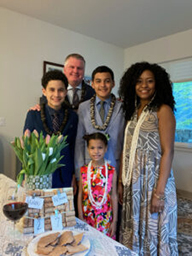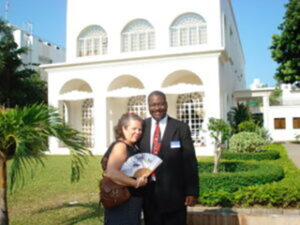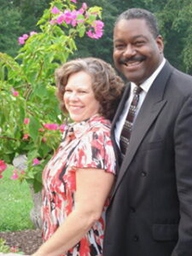Special to NNPA Newswire

When Greg Watson began dating the woman of his dreams 30 years ago, he barely noticed the contrast in their skin colors.
“It wasn’t an issue,” he recalls after three decades with his wife, Jody. “We weren’t brought up to see people that way.”
Not everyone in his rural community agreed, however.
Greg remembers the first times he noticed heads shaking in disapproval of a Black man with a white woman. Suddenly, he couldn’t get the issue off his mind.
“When we would go out, Jody would caution me, ‘Why do you keep looking over your shoulder?’” said Greg.
“I would say, ‘You just never know.’”
According to the Pew Research Center, one in six new marriages is now interracial. However, while statistics suggest that interracial marriages in America have gained greater acceptance, not all couples have that experience.

Still, they have found ways to cope.
Shared religious faith, along with a community of fellow believers, has been invaluable in navigating the cultural complexities.
Greg and Jody grew up worshipping and associating with a diverse group of people in their congregation of Jehovah’s Witnesses.
So, neither their families nor their fellow congregants were surprised when they began to date and later married.
The experience was similar for Monifa and Isaac Homza’s multiracial, multi-generational clan.
Monifa’s Nigerian-Caribbean father and Korean mother were often a curiosity in their New York City neighborhood. But at home, the children could see their peaceful and loving relationship, Monifa said.
“They took care of each other despite what was happening around them.”
Meanwhile, Isaac grew up in rural Virginia, where he observed the racial divide daily on his bus ride to school.
As he passed two churches that shared a parking lot, he noticed that the lot divided attendees by race.
“It seemed strange to me because, at our congregation, we all met together,” Isaac said.
The couple eventually met through a mutual friend when Isaac moved to New York to work at the headquarters of Jehovah’s Witnesses with volunteers worldwide.

Monifa was immediately drawn to Isaac’s piercing blue eyes. As for Isaac, there was no question: “I thought she was beautiful.”
A similar sense of humor and willingness to expand their cultural horizons helped too.
The couple might never have come to be if the prior generation hadn’t overcome their own cultural biases.
Monifa’s father made significant changes once he started studying the Bible and saw that all races are equal in God’s sight.
He widened his circle of friends, met Monifa’s mother, and later welcomed his white son-in-law into the family.
“It was heartwarming to me because I knew the background my dad had and the prejudices he held,” said Monifa.
“It’s not the way you look. It’s what you are on the inside.”
Now living in Maui, the Homzas are working to impart the same qualities to their three children as part of a Hawaiian-language congregation.
“One of the Bible principles we try to teach them is a love of neighbor,” Monifa added. “We don’t categorize people. We love people of all races.”
According to a study conducted by the University of Utah, married couples who had shared values reported higher levels of marital happiness and individual well-being than those who did not.
The Watsons agree that love, loyalty, and faith are among the shared values on which they base their marriage and family life.
They credit daily Bible reading and prayer with helping them to communicate on a deeper level with one another, especially when differences of opinion come into play.
“When you have differences,” said Jody.
“You have a base to go back to—God’s standards.”
Greg agreed:
“Our cohesiveness has been our faith and applying principles. In the Bible, it said that God made the two one, and we take that very seriously.”
Now retired and with no children at home, the Watsons hike, bike, and spend time in a volunteer ministry with each other.
“We spend all of our time together,” Greg said.
“Things just seem to be getting better and better.”

